Shape Recognition Easy Geometry Worksheets for Ages 5-9
17 filtered results
-
From - To
Discover our engaging "Shape Recognition Easy Geometry Worksheets" designed specifically for children aged 5-9. These fun, printable activities make learning about shapes exciting and accessible! Each worksheet introduces essential geometric concepts through colorful illustrations and relatable themes, helping kids identify and understand various shapes. Perfect for classroom or home use, these worksheets enhance visual perception skills and boost confidence in young learners. Featuring a variety of interactive exercises, your child will develop a solid foundation in geometry while enjoying the learning process. Explore the world of shapes today and ignite your child's curiosity about math with our fantastic resources!
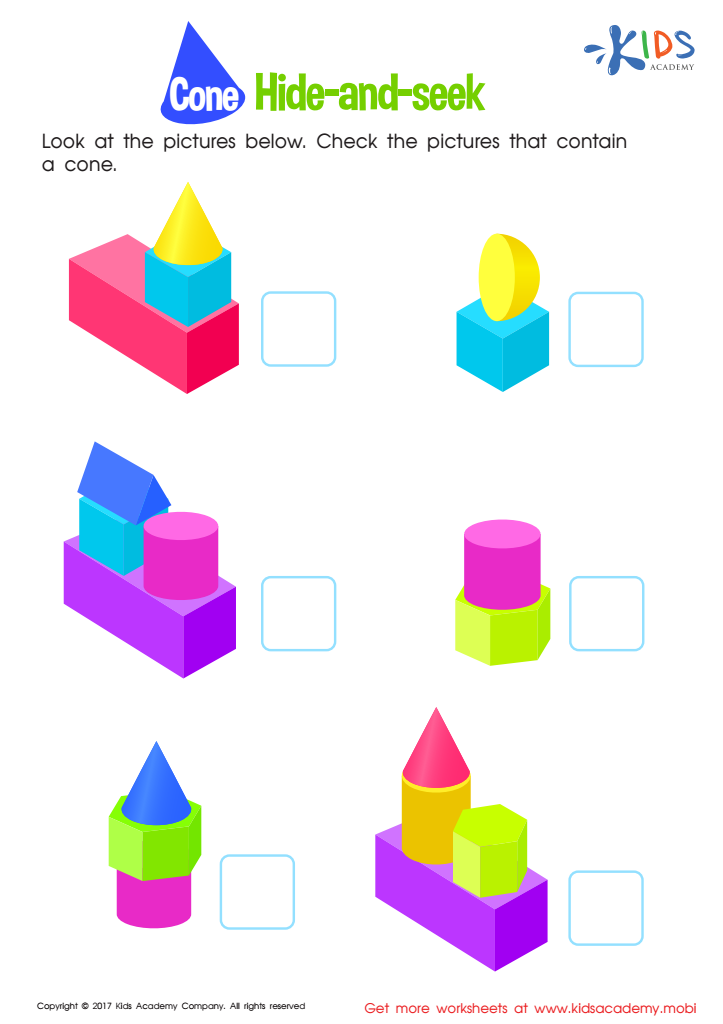

Cone Hide-and-Seek Worksheet
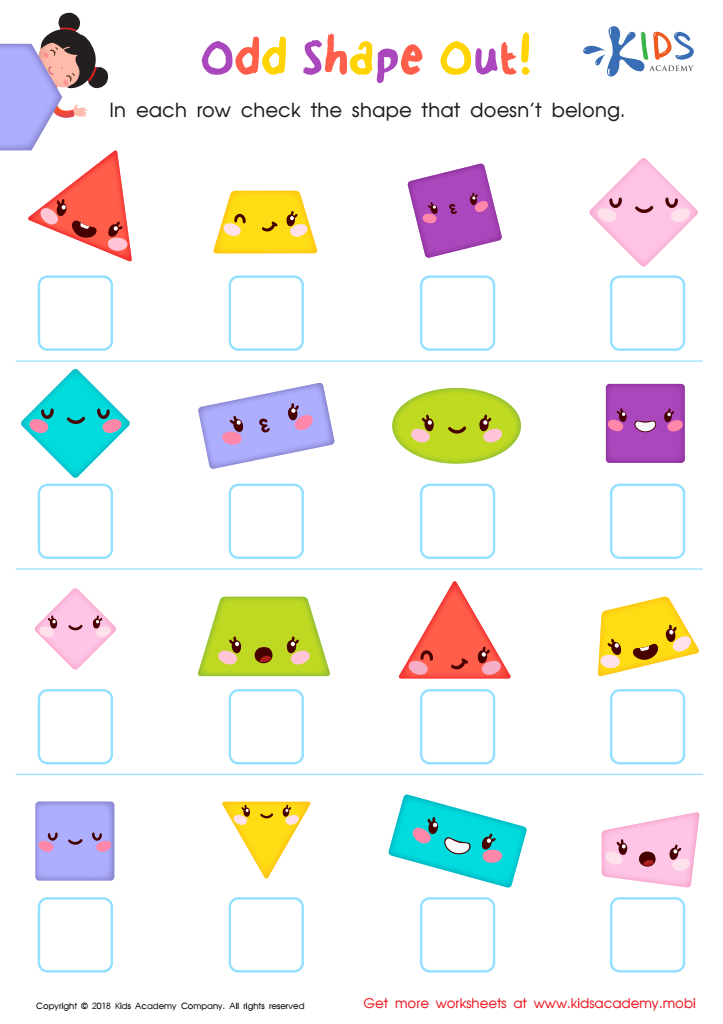

Odd Shape Out Worksheet for Grade 3
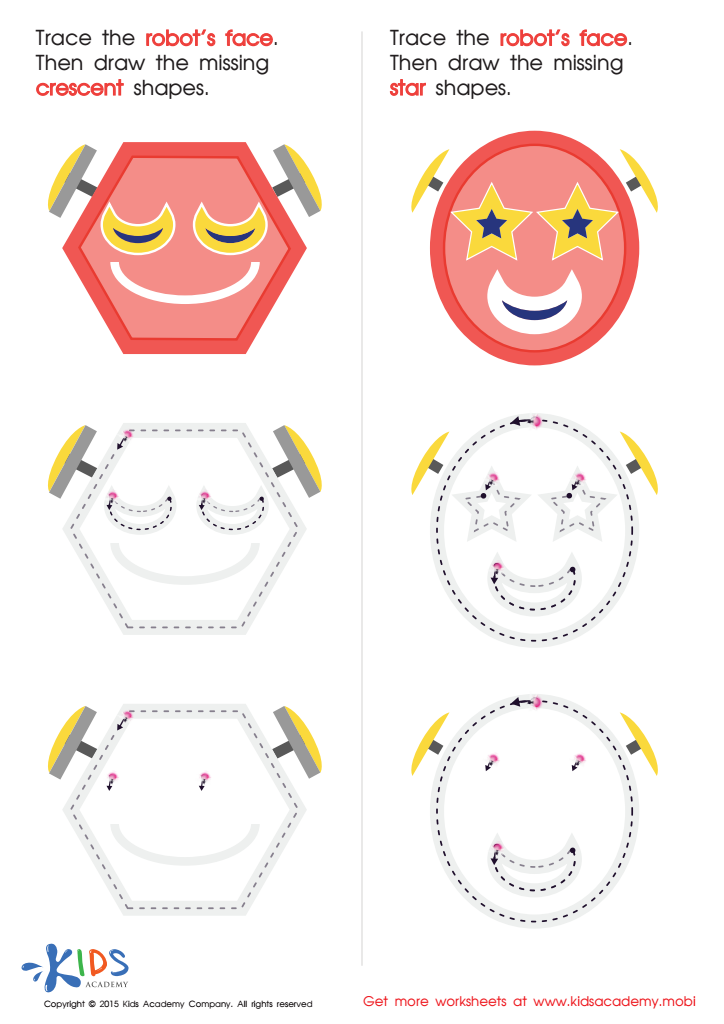

Composing a Robot's Face of Crescents And Stars Worksheet
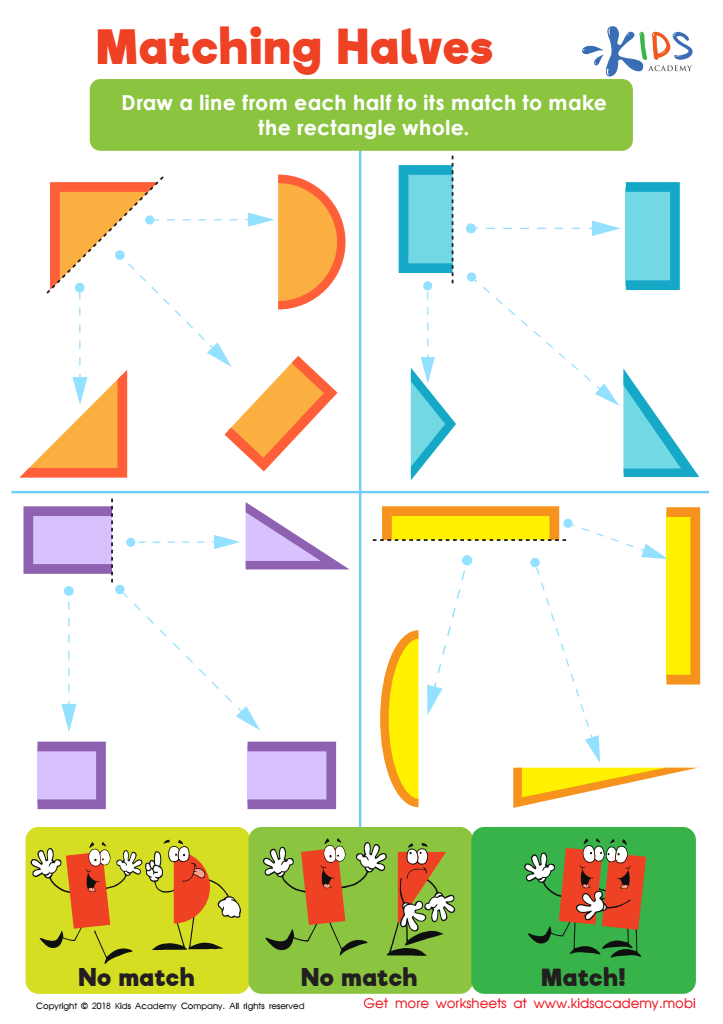

Matching Halves Worksheet
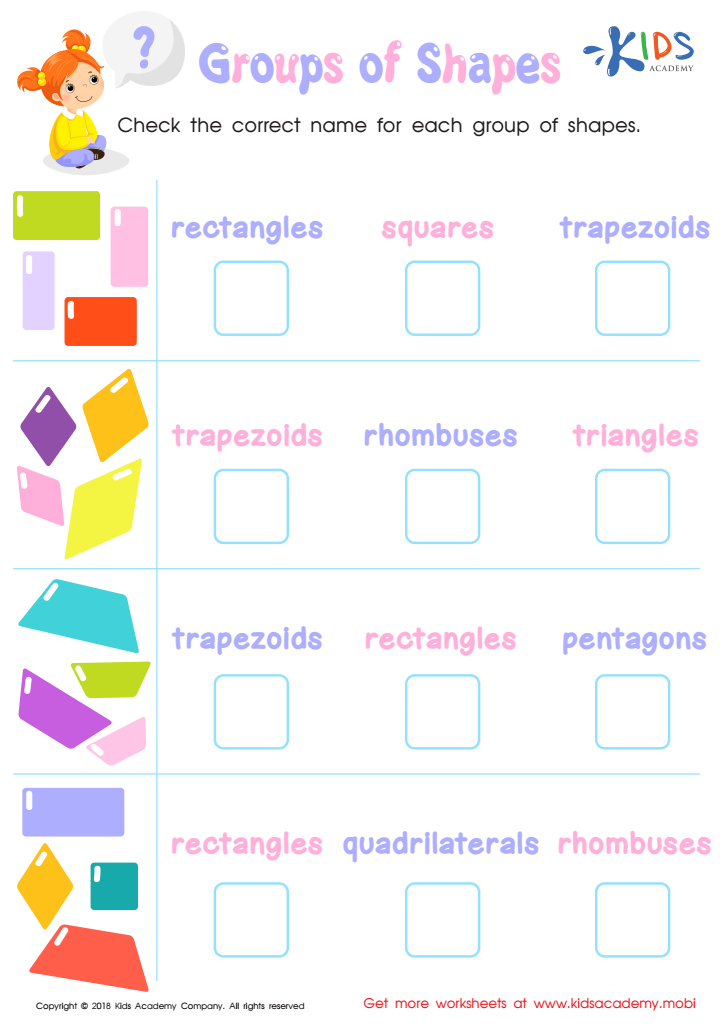

Groups of Shapes Worksheet


Faces of 3D Shapes Worksheet
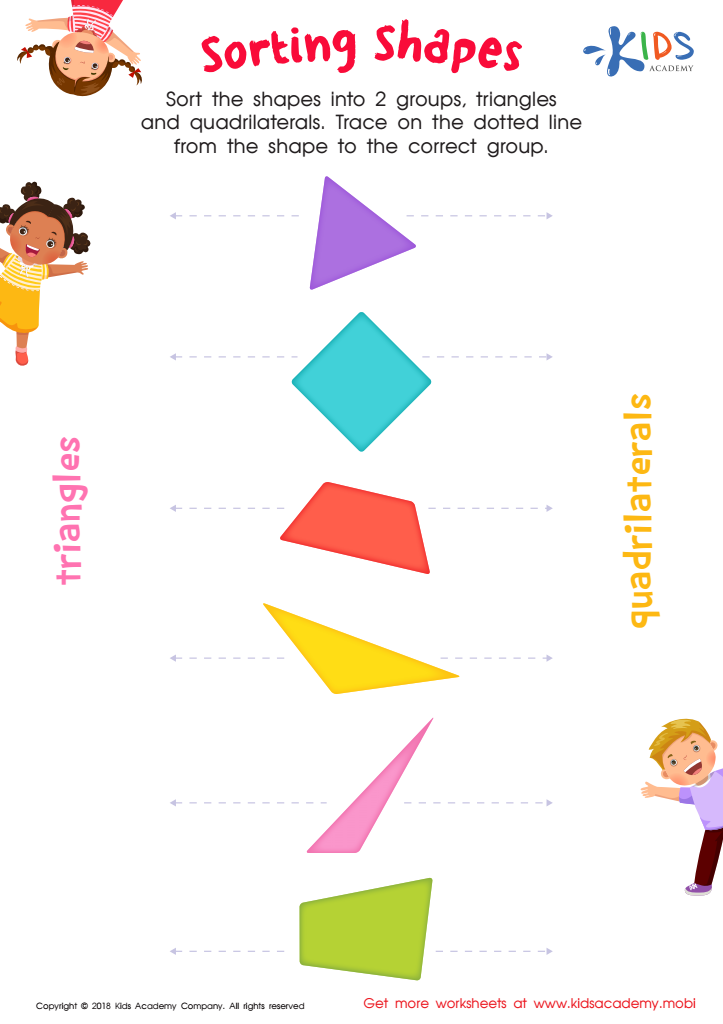

Sorting Shapes Worksheet
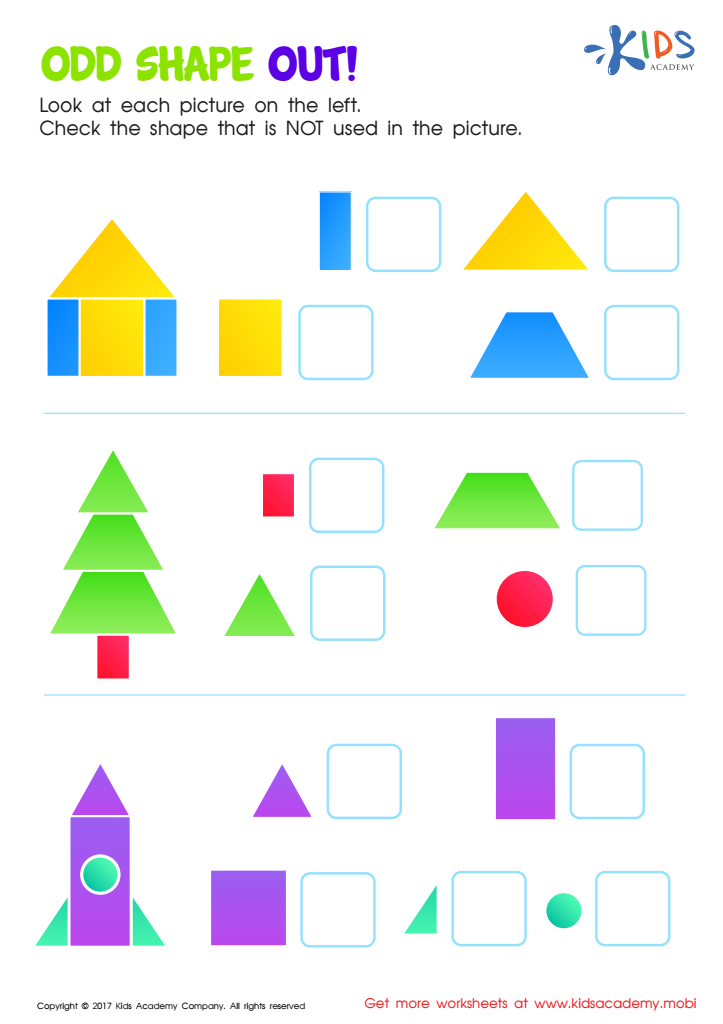

Odd Shape Out Worksheet for Grade 1
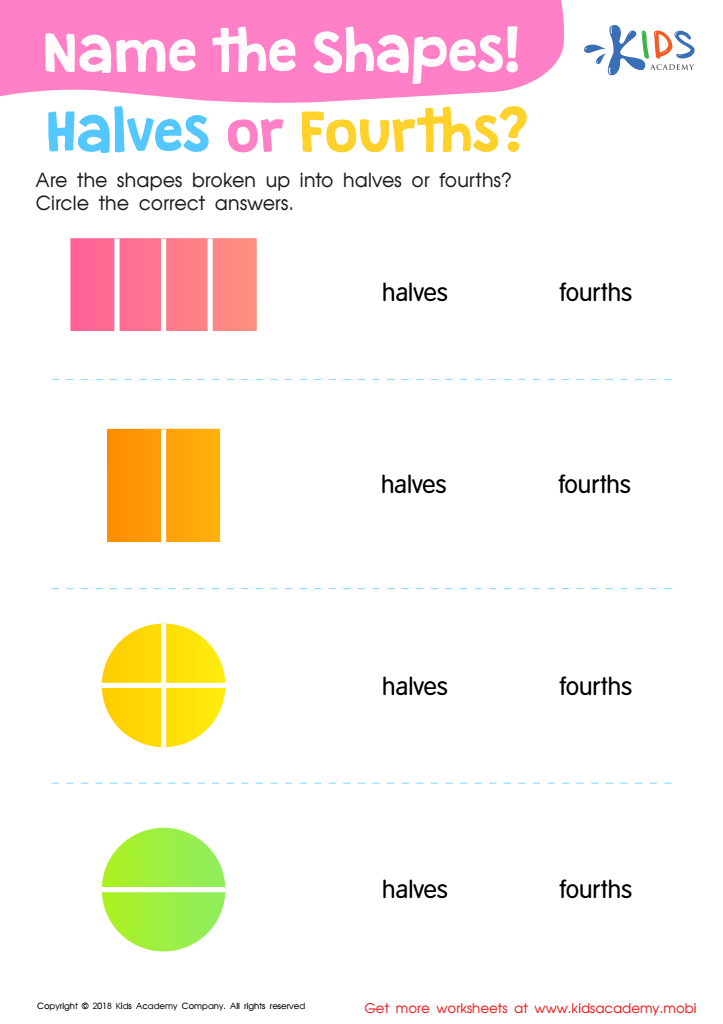

Name the Shapes Halves or Fourths? Worksheet
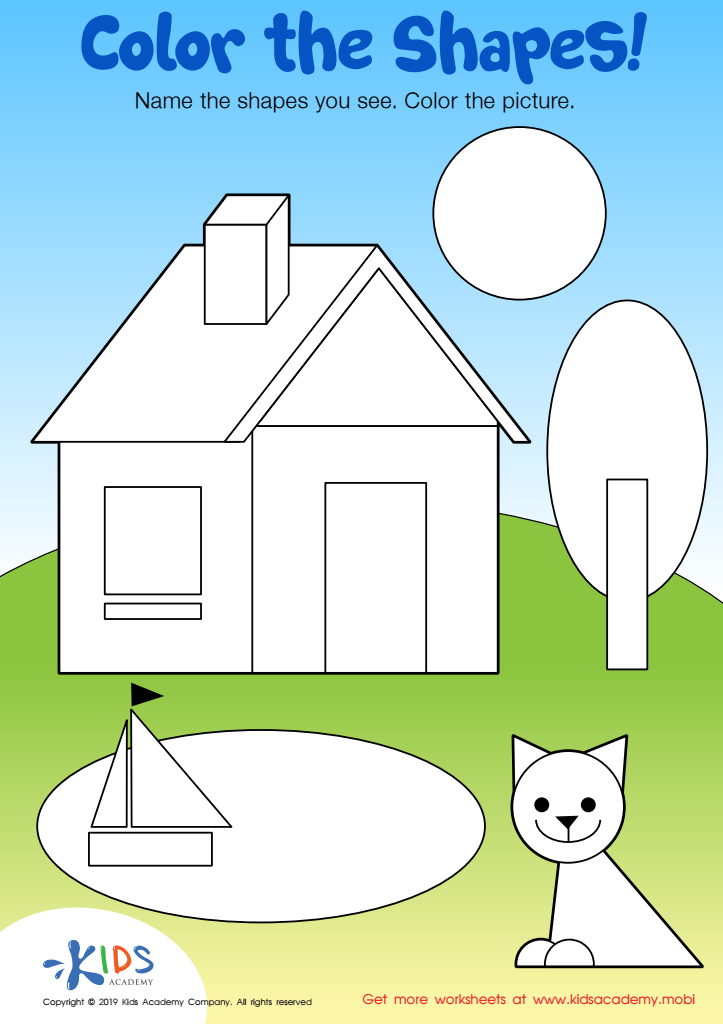

Color the Shapes Worksheet
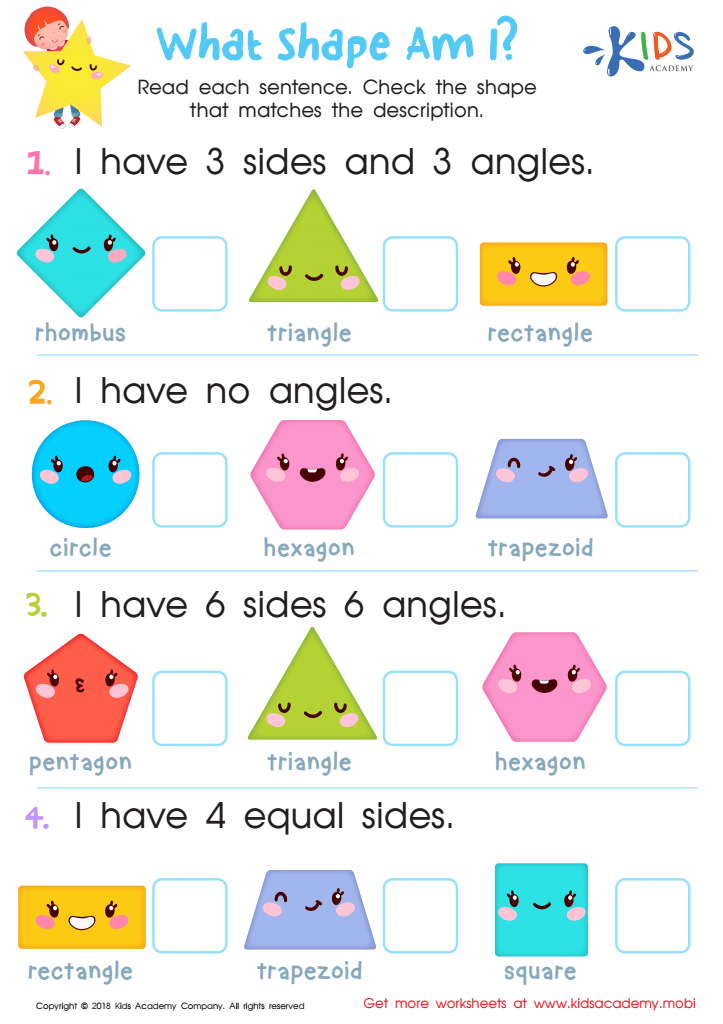

What Shape Am I? Worksheet
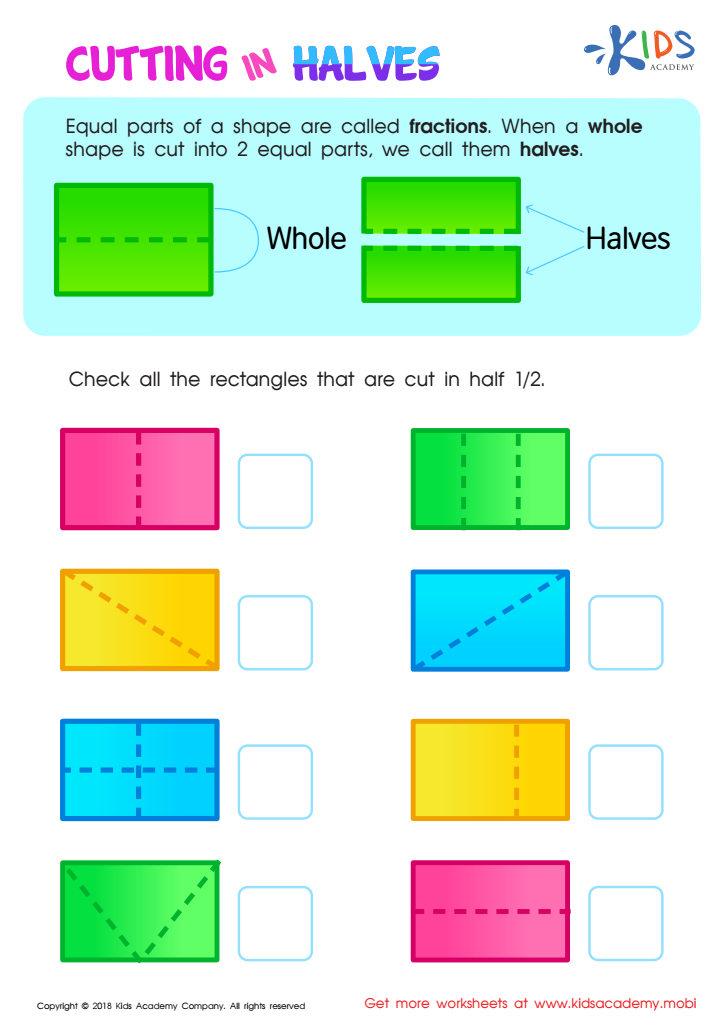

Cutting in Halves Worksheet
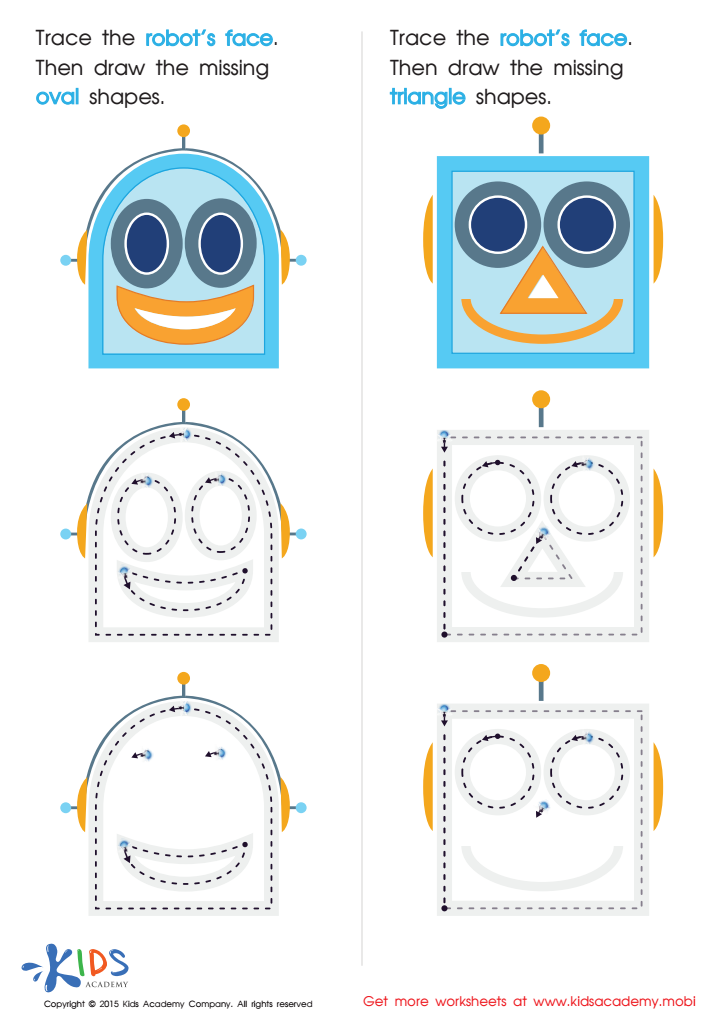

Drawing Ovals And Triangles with Fun Printable
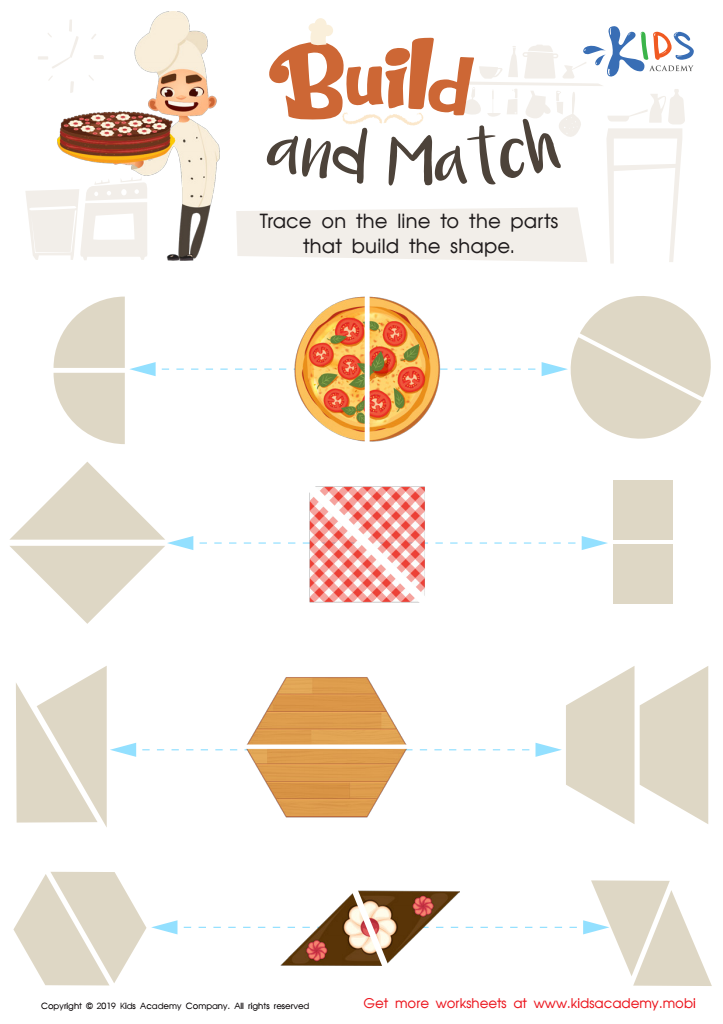

Build and Match Worksheet
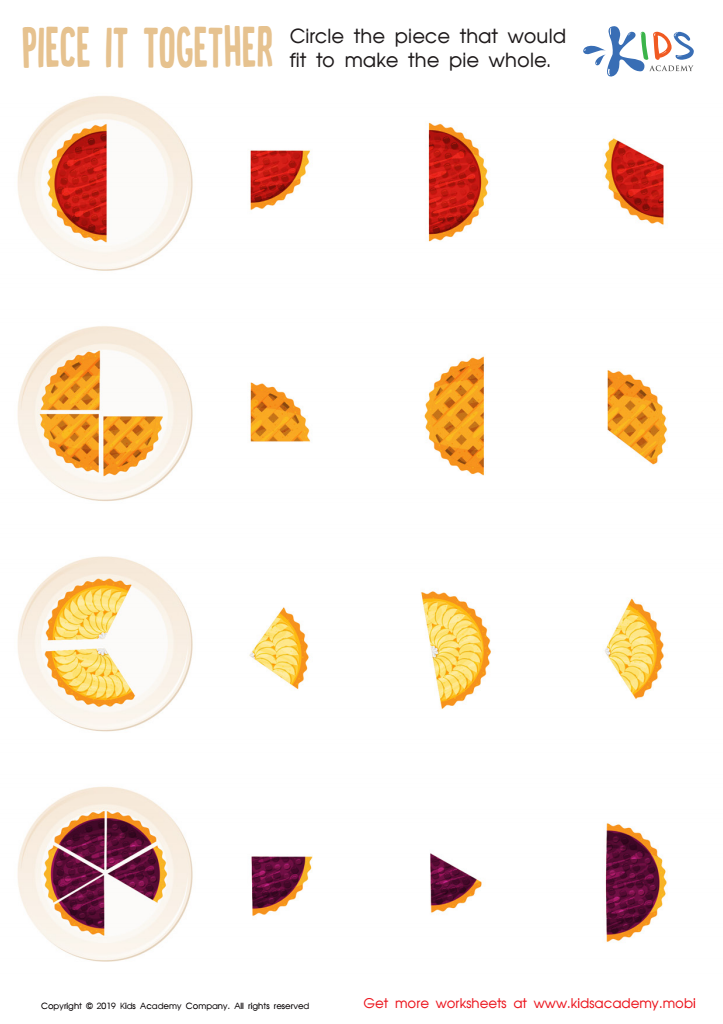

Piece it together Worksheet
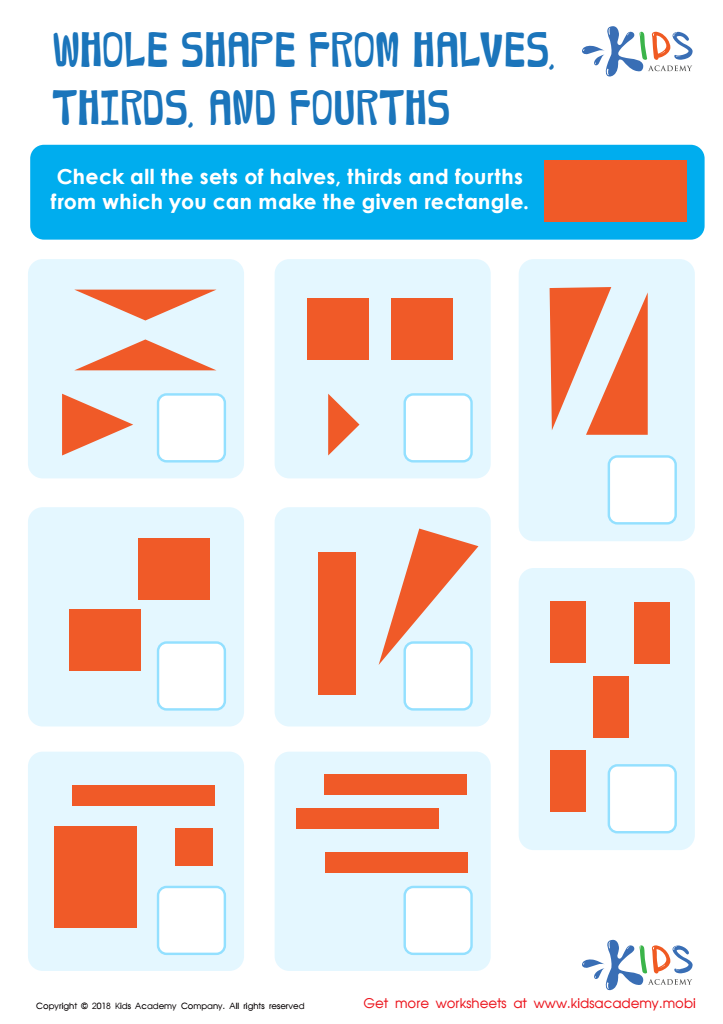

Whole Shape from Halves, Thirds and Fourths Worksheet
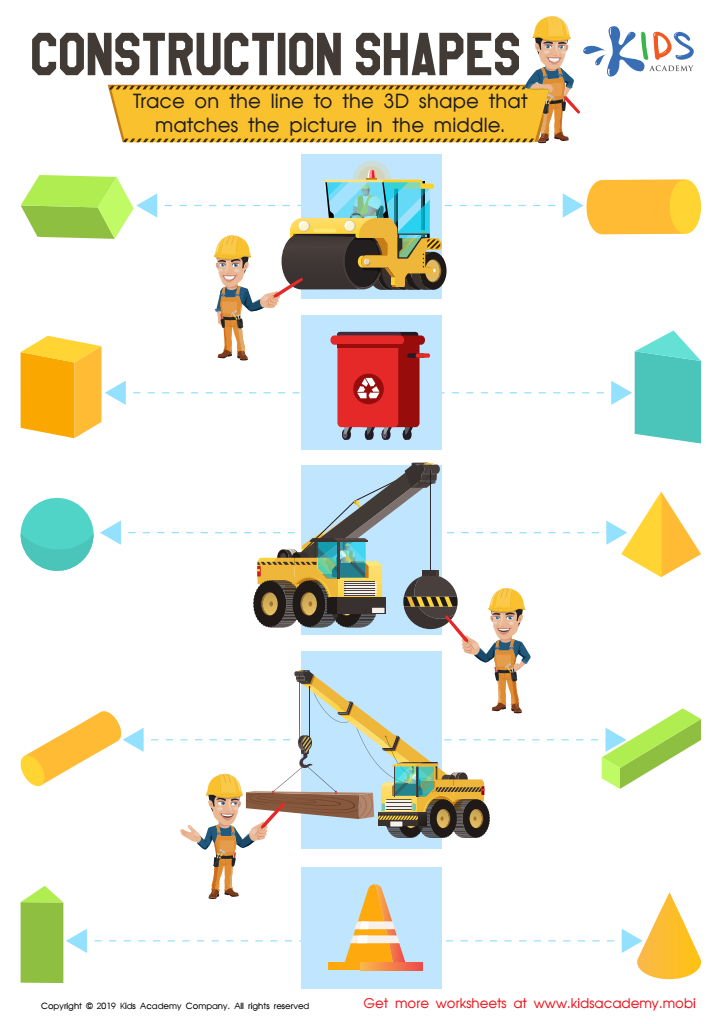

Construction Shapes Worksheet
Shape recognition is a foundational skill that significantly impacts a child's early cognitive development, particularly for ages 5-9. Understanding basic shapes lays the groundwork for more complex mathematical concepts, helping children develop spatial awareness, problem-solving skills, and logical reasoning. Parents and teachers should prioritize shape recognition because it is often the gateway to geometry, which appears in countless elements of everyday life, from art and architecture to patterns and nature.
Engaging in shape recognition activities fosters critical thinking and creativity, equipping children to categorize and describe the world around them. It also enhances fine motor skills through hands-on activities, such as drawing or assembling shapes, which are crucial for handwriting and other tasks later in life.
Moreover, teaching shapes in a playful manner promotes a positive attitude toward learning math, reducing anxiety and instilling a sense of confidence in children. Parents and teachers can create a rich learning environment by using interactive games, real-world examples, and creative arts, making the acquisition of shape knowledge enjoyable. Ultimately, focusing on shape recognition not only supports academic achievement in geometry but also nurtures essential skills and an eagerness for lifelong learning.
 Assign to My Students
Assign to My Students


























